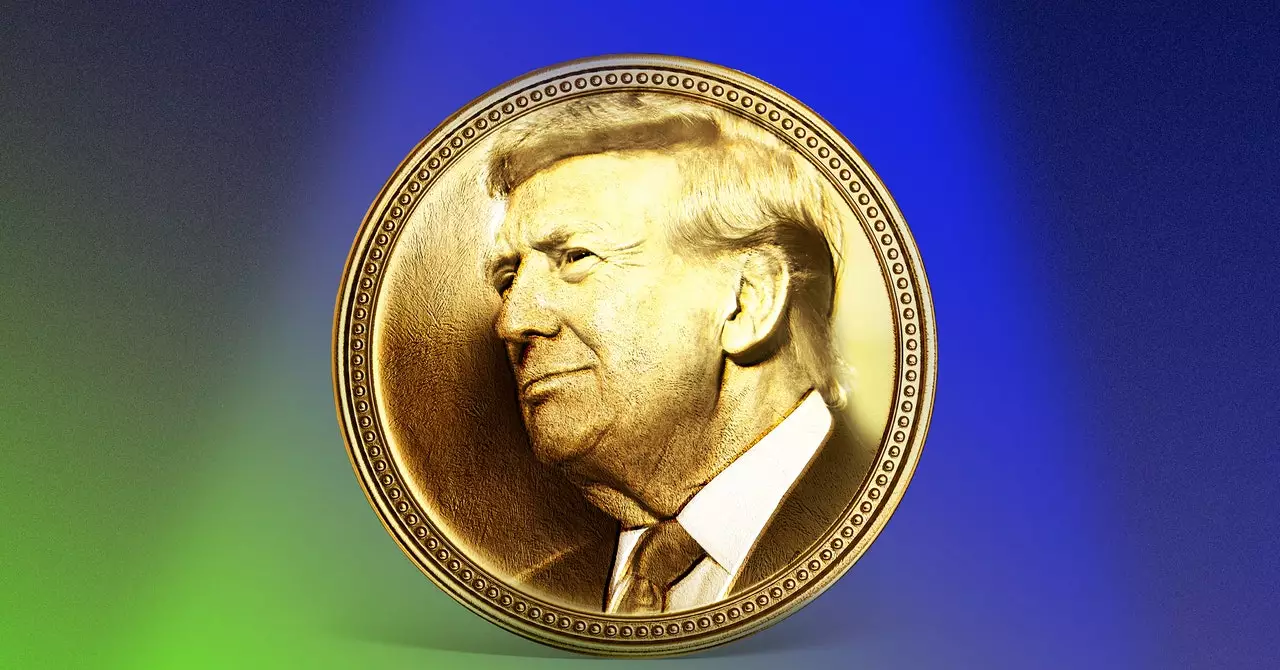In a striking deviation from his previous stance, former President Donald Trump appears to be embracing the world of cryptocurrency with open arms. Once dismissing Bitcoin as a mere “scam,” Trump now positions himself as a champion for the crypto sector, promising to transform the United States into the “crypto capital of the planet.” This tide-turning proclamation came during a convention in Nashville, Tennessee, in July 2023, where he pledged to establish a national “bitcoin stockpile” if he were to reclaim the White House. This sudden enthusiasm has puzzled many, particularly those who remember his earlier skepticism.
Trump’s assertion of a national Bitcoin initiative is not only ambitious but also politically charged. It shows his attempt to capture the attention of a burgeoning demographic of crypto enthusiasts, effectively altering the political landscape as cryptocurrencies gain traction among the electorate. Tyler Winklevoss, a prominent figure in the crypto sphere, quickly took to social media to announce Trump as having been “orange-pilled,” a term denoting one’s immersion into crypto culture. This suggests not only a newfound acceptance of digital currencies but also a strategic alignment with a demographic that feels increasingly empowered in political discourse.
Additionally, Trump’s foray into the cryptocurrency arena coincides with an influx of tokens bearing his name or inspiration. Speculation initially surrounded his sons, Eric and Donald Jr., who hinted at the possibility of launching an official Trump-themed cryptocurrency. In 2023 alone, several so-called memecoins associated with Trump have emerged, mirroring the fluctuations of his political fortunes. One noteworthy token, DJT, saw a meteoric rise after rumors suggested it had connections to Trump’s family. However, this hype quickly turned tumultuous when it plummeted by 90% following a significant sell-off by anonymous holders.
The price volatility of DJT raises questions about the sustainability and reliability of tokens that aim to exploit Trump’s brand. Martin Shkreli, a notorious figure in the pharmaceutical world, claimed involvement in the token’s creation alongside Barron Trump. However, his subsequent denial of responsibility for the sell-off reflects the chaotic and often speculative nature of the crypto space, where financial fortunes are often dictated by rumor rather than foundational value.
Amidst all this chaos, World Liberty Financial—Trump’s latest venture—faces an uphill battle in a DeFi market already teeming with established players such as Aave and Compound. The challenges in this saturated marketplace are significant, as the intricacies of decentralized finance (DeFi) necessitate a sophisticated understanding that may be lacking among novice entrants. Zach Hamilton, a crypto entrepreneur, aptly notes the maturity of the DeFi sphere, suggesting that success in this realm requires more than just name recognition.
Despite this, the Trumps have an undeniable advantage in the form of widespread publicity. The sheer visibility associated with Trump’s name can be leveraged as free marketing, creating an avenue for World Liberty Financial to attract interest. However, this raises the question of whether the venture can transcend mere brand association to provide a legitimate contribution to the crypto landscape.
The introduction of Trump’s family into the cryptocurrency scene is more than a business endeavor; it encapsulates the intertwining of politics and finance in modern America. Historically, the crypto sector has been perceived as an outlet for libertarian ideals and right-wing philosophies, a trend that has only intensified as the political climate shifts. Jacob Silverman, an author and commentator on cryptocurrency, highlights how crypto has increasingly aligned itself with Republican values, marking a departure from its initial ethos of an anti-establishment financial alternative.
Trump’s foray into cryptocurrency could be viewed as a strategic maneuver to secure financial viability should he lose the upcoming election. By positioning himself within the crypto space, he may be aiming to diversify his portfolio and create a safety net for his financial future. Following his warm reception at the Nashville crypto conference, there is a possibility that Trump sees this new landscape as an avenue for both profit and continued influence, cementing a legacy that extends beyond traditional politics.
As the world watches Trump’s evolving relationship with cryptocurrency, it remains essential to approach this intersection of politics and finance with caution. The crypto landscape is notoriously volatile, and the implications of a Trump-led venture into this domain are multifaceted. While it holds the promise of innovation and widespread adoption, it also carries significant risks that could backfire, creating potential pitfalls for investors and political supporters alike. As the narrative unfolds, the relationship between Trump and the crypto community will undoubtedly shape the future of both realms in unforeseen ways.

